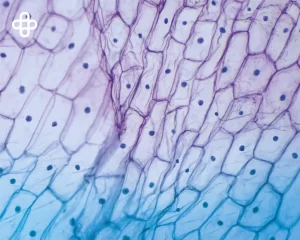Regenerative medicine for blood pressure control. Regenerative medicine has revolutionized healthcare, providing innovative alternatives to traditional treatments, including medications for blood pressure management. By leveraging advancements in stem cell therapies and other regenerative approaches, it is possible to regulate blood pressure naturally, minimizing side effects and enhancing quality of life.
What Is Regenerative Medicine?
Regenerative medicine focuses on repairing, regenerating, or replacing damaged tissues and organs. This field encompasses stem cell therapies, tissue engineering, and advanced molecular biology. Stem cells, with their ability to differentiate into specialized cell types, enable the body to heal damaged or dysfunctional areas. In hypertension treatment, researchers are exploring therapies that directly target cardiovascular tissues.
Understanding Hypertension and the Cardiovascular System
Hypertension, or high blood pressure, is a chronic condition affecting millions worldwide. It occurs when arteries narrow or harden, forcing the heart to pump harder to circulate blood. Left untreated, it can lead to severe complications like heart attacks, strokes, and kidney disease. Standard treatments include medications such as beta-blockers, ACE inhibitors, and diuretics, which, while effective, often have undesirable side effects.
Regenerative Therapies for Hypertension
Regenerative therapies enhance cardiovascular function by repairing blood vessel damage and strengthening heart tissue. Mesenchymal stem cells (MSCs), derived from adipose tissue or bone marrow, show significant promise in reducing inflammation and promoting vascular regeneration. These processes improve arterial elasticity and help regulate blood pressure.
Promising Clinical Studies
Numerous studies in animals and humans have highlighted the potential of MSCs in reducing blood pressure. For instance, a 2021 study reported a substantial reduction in systolic blood pressure among patients treated with MSCs over six months. This vascular regeneration also improves overall cardiovascular health, reducing long-term risks.

Benefits of Managing Blood Pressure Through Regenerative Medicine
Opting for regenerative approaches over conventional pharmacological treatments offers several advantages:
- Reduced Side Effects: Hypertension medications can cause fatigue, dizziness, and kidney issues. Regenerative therapies, by promoting natural repair processes, significantly minimize these effects.
- Improved Cardiovascular Health: Stem cells can regenerate blood vessels and enhance heart function, benefiting cardiovascular health beyond blood pressure control.
- Personalized Treatments: Regenerative medicine tailors therapies to individual health needs, increasing efficacy.
Future Directions in Regenerative Hypertension Treatment
As research in regenerative medicine progresses, stem cell-based therapies and other innovative treatments are becoming viable options for hypertension management, potentially replacing or complementing traditional medications. Current studies are optimizing MSC usage to ensure lasting, complication-free results.
Gene therapy is another promising avenue involving the introduction of genes to repair blood vessel damage and boost nitric oxide production—a crucial compound for blood pressure regulation. These breakthroughs could revolutionize hypertension treatment shortly.
Lifestyle Changes Complementing Regenerative Therapies
It is vital to note that regenerative medicine is not a standalone solution. Patients seeking to manage blood pressure without medication should adopt healthy lifestyle habits, including a balanced diet, regular exercise, and stress management. Combining these changes with regenerative therapies enhances their effectiveness.
Conclusion – Regenerative medicine for blood pressure control
Regenerative medicine offers an innovative approach to hypertension treatment, allowing patients to control blood pressure without relying on medications. Stem cell therapies, in particular, demonstrate significant potential to repair and rejuvenate the cardiovascular system, reducing dependency on drugs and improving patients’ quality of life. As research continues, the future of hypertension management lies in tissue regeneration rather than pharmaceuticals.
Regenerative medicine for blood pressure control





